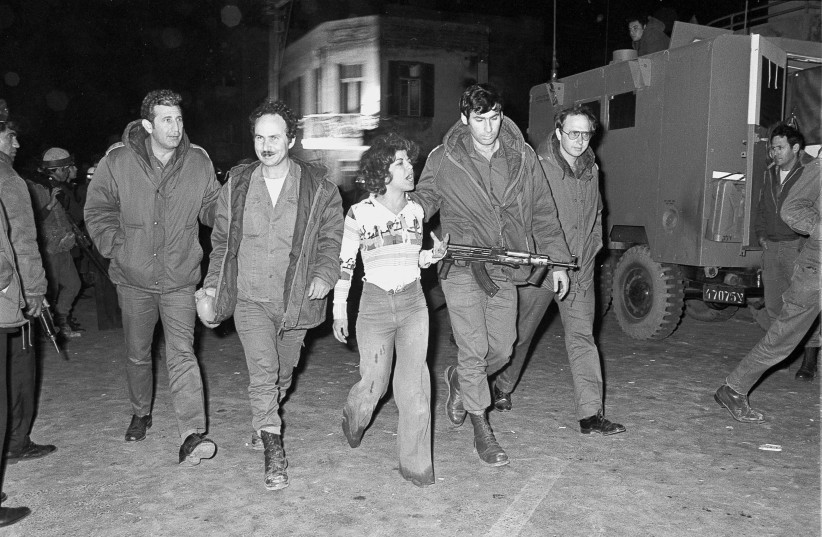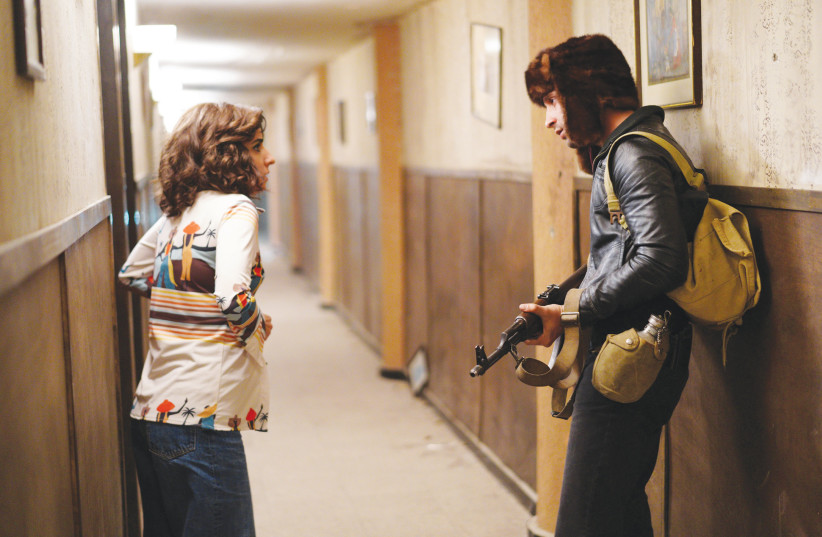Back in the 1970s, Israel – as well as much of the world – was plagued by hostage-taking incidents. We tend to remember the ones that were seen as triumphs for Israel, notably the Entebbe rescue, where almost all the hostages and the Special Forces soldiers returned safely, or those that were particularly brutal, such as the Ma’alot massacre, in which 25 hostages, most of them children, were killed. But there were many hostage incidents that were more ambiguous and those tend to be forgotten.
The fascinating new docudrama by Zohar Wagner, Savoy, which opens at theaters throughout Israel this week, looks at one such complicated siege that took place in 1975. In this deadly attack, the Palestine Liberation Organization entered the Savoy Hotel and held those in the building hostage, demanding the release of Palestinian prisoners in Israeli prisons. Their demands were not met and in the end, Israeli forces stormed the building. The short siege had a high death toll: eight civilian hostages and three Israeli soldiers were killed, and seven terrorists also lost their lives.
The movie, which premiered at the Jerusalem Film Festival last month and was co-produced by Kan, won prizes for its director and its editors, very deservedly. Wagner has chosen to tell this story from many interesting angles and it is the opposite of a straightforward TV movie-type film. It focuses on one of the hostages, Kochava Levi, who is played in the reenactments which make up most of the movie’s running time by Dana Ivgy, the actress who has won three Ophir Awards and starred in such films as Zero Motivation and Or.
A woman of Yemenite descent, she was at the somewhat seedy Savoy Hotel in Tel Aviv. It is located right near the beach in what we now think of as a great location, and it was later demolished and rebuilt, and is now quite upscale (according to its website, “The hotel staff will welcome you with an invigorating glass of cava...”). But in the 1970s, the area was rundown.
Levi, a married mother, was at the Savoy with her lover and so the hostage-taking incident was threatening to her on more than one level. In addition to fearing for her life, she worried that her affair would be exposed and would embarrass her family, which was exactly what eventually happened, and she was even portrayed by the media as a prostitute.

LEVI IS the focus of the movie and the film paints her as a complex character, a woman from a Yemenite background who grew up on a kibbutz, which she moved to because she came from a difficult family situation. Although she had literary aspirations, the kibbutz pushed her to study something practical, like cooking, although she continued to keep extensive journals. Much of the film features narration taken from her journals about the terror attack and while some of it is illuminating, much of it achieves what Woody Allen referred to in Annie Hall as “total heavyosity,” which some viewers may find off-putting.
She also drew both praise and criticism because she became the go-between in negotiators between the police and the terrorists, since she spoke fluent Arabic, and some felt she was too sympathetic to her captors. However, she gave the Israeli authorities detailed information about the terrorists’ location in the building, which helped when they stormed the hotel.
In the movie’s telling, she became close to, and even felt some sympathy for, one terrorist in particular, played by Ala Dakka of Fauda and Image of Victory, but that did not stop her from doing what she could to facilitate the hostages’ rescue.
Storytelling strategies
The movie also tells its story through archival footage and tapes made by a young man who managed to secretly record the siege, in which several hostages were initially shot and killed, and several more perished after soldiers stormed the hotel in the inevitable raid.
The film is exceptionally good, much better than a straight documentary would have been in capturing the chaos and confusion of the attack and siege. The terrorists, who were from the PLO, came to Tel Aviv by sea and had planned to take other, grander targets, but in those pre-Internet days, had little idea where they were heading and ended up in the shabby seaside hotel. They made demands for the release of Palestinian prisoners and asked that the ambassadors of several European countries come to negotiate but none showed up.
Ivgy gives a compelling performance in the lead, one of her best in a career in which she has given many wonderful performances. She makes us feel for this woman and identify with her, showing how she can be sexy and funny on the one hand, and ashamed of her affair on the other. She is particularly good at conveying Levi’s resourcefulness in the face of death. Her performance, along with the film’s innovative structure, elevates the movie and makes it more than just a story about a clever hostage.

Savoy raises interesting questions about ethnicity, class and stereotypes, and will make you think about what has and hasn’t changed in the past few decades.
